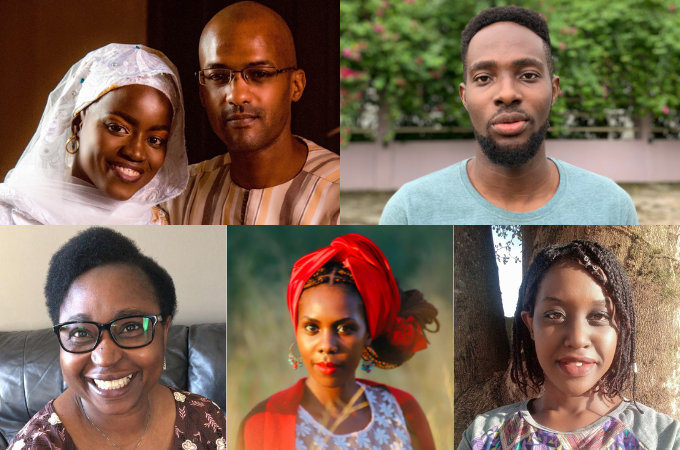
It has been more than two weeks since the AKO Caine Prize for African writing released the shortlist for its 2023 award. The first thing I thought of while reading the announcement was Dobrota Pucherová’s 2012 article, “A Continent Learns to Tell Its Story at Last,” in which she critiqued the Caine Prize for its unintended complicity in the exotification, commodification and othering of African literature and its attempt at reorienting African literature into “the Anglo-American cultural capital.”
The Prize, Pucherová alleged, undermined African literature by encouraging “the reification of marginality and stereotypical images of Africa as a place of trauma and poverty,” sidelined continental African writers and magazines by rewarding “diasporic authors whose stories first appeared in British and US literary magazines” and reinforced the checkered “tradition of Western criticism of African literature” by its proclivity for “UK- and US-based judges.” This recent shortlist gives the impression that so much has changed positively for the prize, which has significantly determined the direction of African literature and shaped the perception of the world about Africa since it was launched in 2000.
The founding vision of the Caine Prize is “to encourage and highlight the richness and diversity of African writing by bringing it to a wider audience internationally.” By shortlisting four out of five stories edited and published in African magazines and anthologies, the prize has amplified its commitment to centering Africa in the processes of creation, production, interpretation and valuation of African literature.
Also, the foresight of the jury in paying attention to what is urgent in Africa today requires commendation. By assembling an all-women judging panel which eventually selected this shortlist of stories focusing on various aspects of the female condition in Africa with innovative and often fantastical insights into the predicaments, the prize offers African literature the agency to speak decisively and urgently to the precarity of gender-based violence ravaging the continent and the world, and which, according to the reports of the United Nations, reached fatal heights during the COVID-19 pandemic.
So, this shortlist presents to us writers who, using Rose Acholonu’s expression, extend “beyond the confines of traditional realities, in order to probe, discover and document extraordinary female experiences.” When I first read Yvvone Kusiima’s “Weaving” last year, it made me think of the times I used to plait my mother’s hair. So, even if the story was untitled, I would still have thought of it as “weaving.” Thomasina’s, Jessica’s, and Gran’s stories interlace neglected but consequential narratives into a tapestry of the deteriorating human condition in modern Uganda under political siege. Kusiima’s metaphoric engagement with mat-making is brilliant. Think of Kusiima’s characters and see for yourself just how melancholically and beautifully they weave their personal and social experiences into the mats.
There is much to learn about the relationship between migration and memory in “Weaving.” Distance and time shape what and how Thomasina remembers the past. But the linguistic implication of displacement strikes me more intensely in the story. When Thomasina says: “This village can really, really kill your tongue,” I see a girl struggling not to lose her voice, which is the only thing she has left. Yes, “Weaving” has a voice, one that rings through Kusiima’s sonorous prose, into the hearts of readers dismembered first by the tragedy of Thomasina’s rape and later by the bloodied image of her abortion supervised by Gran. Toni Morrison’s observation that “we all have empathy” but lack “enough courage to display it” explains the kind of situation Gran was trapped in, in her beleaguered relationship with her foster grandchildren.
Women like Gran who are alienated from maternal desires and responsibilities also feature in Ekemini Pius’ “Daughters, By Our Hands,” a speculative fiction narrative in which women live and reproduce by their fingernails and without any sexual contact with men. Justifiably, there are no male characters in the story. What “Daughters, By Our Hands” lacks in creative language, it tries to augment with its reassuring commitment to the feminist creed of women’s emancipation. It is striking that the homogeneity of the gender of Pius’ characters does not diminish the complexity of the story, given that they relate to life differently and pursue fulfillment individually.
The story focuses on Eme and her daughter Aniema, both of whom are genetically reproductive, but whose ideals of life conflict. While Eme looks forward to becoming a grandmother and even encourages her daughter to sell some of her fingernails for material benefit, Aniema does not consider herself suited for motherhood and its demands. So, rather than pander to her mother’s expectation, she gifts two of her fingernails to a stranger nearing menopause. Aniema’s decision sheds light on the sisterhood of women.
If Pius’ story foregrounds the need for women to give and receive love freely among themselves, Tlotlo Tsamaase’s “Peeling Time (Deluxe Edition)” creates an army of one woman confronting the dense darkness of patriarchal cruelty against women. Tsamaase’s story is an intensely spiritual and hypnotic narrativized journey into a disordered world in which gender-based violence is calcified by technology and normalized by the media.
It tells the story of Motsumi, a musician and music producer, whose stardom is inextricably tied to the power he extracts from the souls of talented women whom he murders through a sophisticated technology that erases the evidence of his crimes. To remain mystically buoyant and capable of overpowering his victims and silencing them afterwards, Motsumi transcends the realm of mortality, alternating between a spiritual world of invincibility and a material one of visible horror. Not only does Motsumi spiritually and scientifically dispossess his victims of their essence, he uses their tragedies to create music that often speaks to the endangered lives of women in his society, posturing as a feminist artist ameliorating the intolerable conditions women are subjected to in patriarchal cultures. But adjacent and indeed opposed to Motsumi is Sewela, one of his victims, who commits herself to the task of reclaiming her essence and voice from Motsumi, using her freedom to draw attention to the plight of other women like her who have for long remained yoked with their oppressor.
“Peeling Time” is so heavily scientific and linguistically cryptic that the architecture of the narrative may confound the imagination of even disciplined readers, but those who manage to make sense of the story will appreciate the burning brilliance of Tsamaase’s mind. Interweaving music and art criticism, Tsamaase asserts a feminist agency and voice in a patriarchal and oppressive speculative world through Sewela’s ultimate victory over Motsumi.
Whereas Sewela’s struggle against gender-based violence is targeted at Motsumi, the child-heroine of Mame Bougouma Diene and Woppa Diallo’s “A Soul of Small Places” fights against a tribe of primitive and bestial herdsmen with a rapacious appetite for raping girls and women. The story follows the life of a teenage girl, Woppa, possessed by a jinn desirous of the flesh and blood of men. Woppa’s discovery of her true self, her eventual acceptance of the overwhelming influence of the jinn on her life and the altering of her humanity culminate in a deeply harrowing fantasy.
The story is set in a rural Senegalese community haunted both by the herdsmen and by a patriarchal culture that exonerates the rapists from the crimes they commit. It appears the community can only be rescued from these oppressors by Woppa, since her jinn enables her—especially when she is dangerous—to assume a beastly form and devour the herdsmen. But Woppa eventually loses control of her mind and emotions and becomes the beast that haunts her family and community.
“A Soul of Small Places” weaves myth and narrative together in its sensitive inquiry into the past and present conditions of women in Senegal. Beneath its engagement with feminist tropes, the story is layered and hyphenated with emotion and longing; traversing the protective care of parents and siblings and the sensual love of teenagers, amplifying, in the process, the innate capacity of love to cushion violence. The language of the story is reassuring, so readers can possibly recover themselves after experiencing Woppa’s tragedy and sharing in the trauma of what is left of her community.
Literature reveals and instructs. “A Soul of Small Spaces” does exactly that, but beyond the urgency of its themes, the story makes us feel. In feeling what Woppa feels and sharing in her struggle to free herself and her community from the tyranny of violent possession and the corrupting influence of the herdsmen, we realize just how similar we or the people we know are to Woppa, and how close her community is to ours. This is why I often return to the story.
While Diene and Diallo explore the peripatetic condition of finding and losing the cherished memories of family, friendship and community in the throes of self-discovery, Yejide Kilanko situates love and filial connection at the heart of “This Tangible Thing.” In the story, Àjọké is constantly abused by her classmates, who intentionally mispronounce her name as “a joke.” Àjọké’s experience makes her selectively mute. Her taciturnity confounds both her parents and her therapist. Frustrated by her child’s condition, Àjọké’s father travels back with her on holiday to Nigeria, to meet her grandmother, Bíbíire. A vivacious old woman, Bíbíire quietly penetrates Àjọké’s mind with love, earning her granddaughter’s trust. When Àjọké eventually shares her experience with Bíbíire, the woman takes on the responsibility of educating her granddaughter on the cultural values of her name.
Kilanko’s story fills our heart with the knowledge of the assuring capacity of love to break into walled hearts, unmute silenced lips, and dispel the burden of racism. Its thematic complexity is astonishingly rendered in a language so simple that both young and adult readers will relate to it.
Commenting on this year’s edition of the prize, Sarh Ozo-Irabor, Director of the Caine Prize, remarked that the judges—comprising of Zimbabwean law professor and women’s rights author Farede Benda, Ivorian writer, literary translator and activist Edwige-Renée Dro, Sierra Leonean/British scholar and literary activist Kadija George Sesay, British-Nigerian author and editor Jendella Benson, and Somali British writer and poet Warsan Shire—are “illustrious and highly accomplished” and “will no doubt continue The Caine Prize’s legacy of expanding the wealth of contemporary African writings.”
If legacy is the unrelenting pursuit of excellence, the Caine Prize has furthered that quest by shedding light on gender-based violence in Africa through speculative stories that offer uniquely bold insights into the changes happening in the world today. With 230 submissions from 28 countries by writers of African descent living on the continent and in the diaspora, it is a considerable achievement to be shortlisted for the 2023 AKO Caine Prize for African writing.
***
Read Yejide Kilanko’s “This Tangible Thing” here.
Read Tlotlo Tsamaase’s “Peeling Time (Deluxe Edition)” here.
Read Mame Bougouma Diene and Woppa Diallo’s “A Soul of Small Places” here.
Read Ekemini Pius’ “Daughters, By Our Hands” here.
Read Yvonne Kusiima’s “Weaving” here.



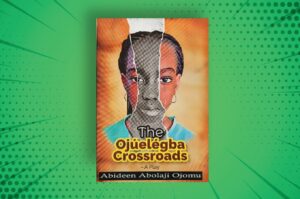
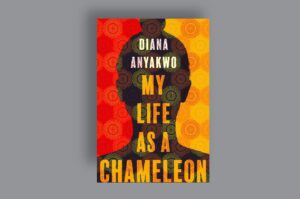

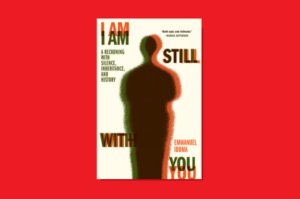
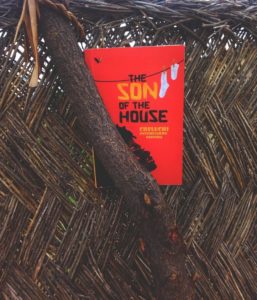

COMMENTS -
Reader Interactions